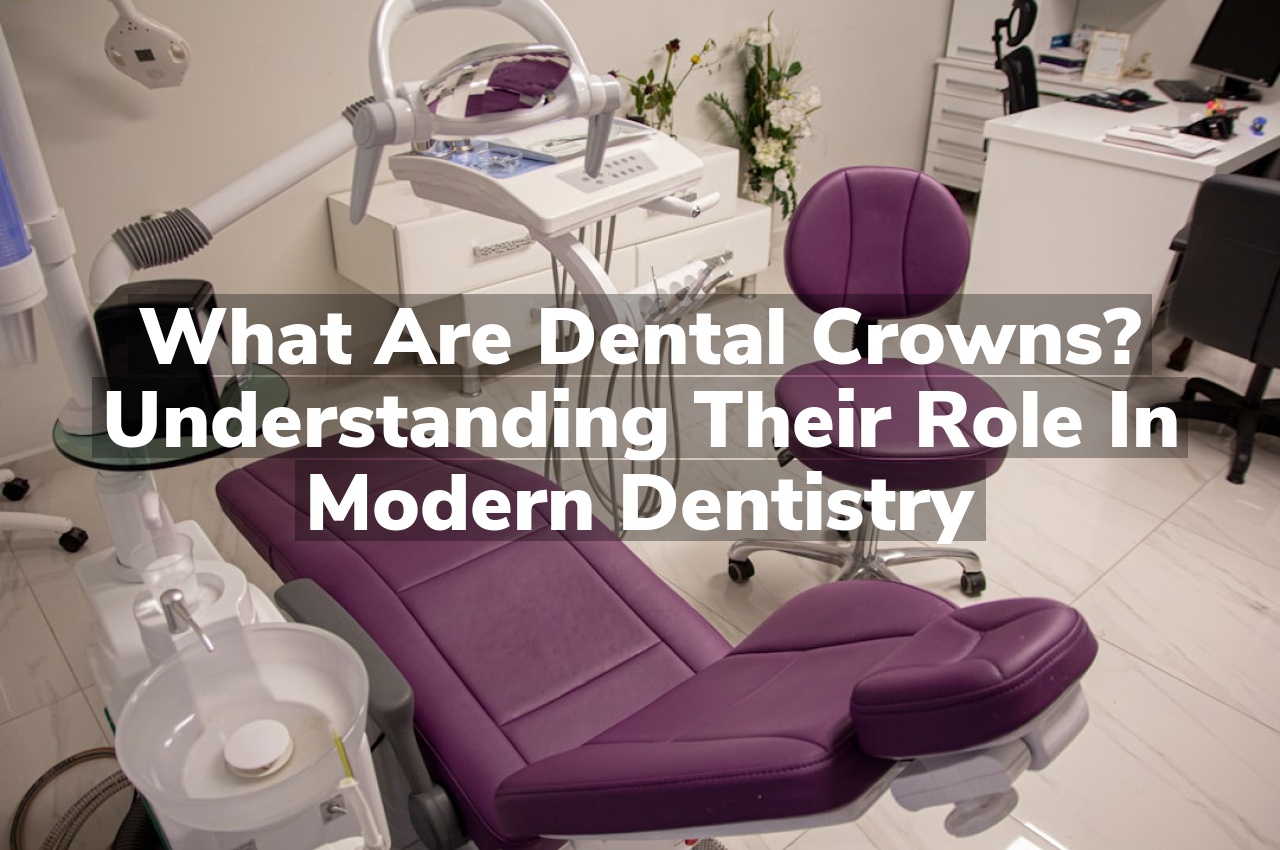What are dental crowns, and why are they so significant in modern dentistry? Dental crowns are custom-fitted coverings placed over a tooth to restore its shape, size, and strength, effectively enhancing oral functionality and aesthetic appearance. They play a crucial role in dental restoration procedures, helping to protect damaged teeth and maintain overall dental health.
Types of Dental Crowns Available
When exploring what are dental crowns, it’s important to understand the variety available in modern dentistry. Dental crowns are custom-made caps placed over a tooth to restore its shape, size, strength, and improve its appearance. The materials used for these crowns can vary widely, each offering different benefits. Metal crowns, often made from gold or other alloys, are praised for their durability and long life. Porcelain or ceramic crowns are popular for their ability to match the natural color of teeth, making them a preferred choice for visible teeth.
Another option includes porcelain fused to metal, which provides a strong bond and a more natural appearance than metal crowns. There are also newer materials like resin and stainless steel that are typically used in specific situations such as temporary crowns or for children’s teeth. Each type of crown serves a unique purpose and is selected based on the patient’s specific dental needs and aesthetic preferences. For more detailed information on maintaining your dental crowns and ensuring their longevity, you might want to read about How Long Do Dental Crowns Last? Tips for Maximizing Their Lifespan.
What Are Dental Crowns?
The history of dental crowths stretches back several centuries and showcases the evolution of dental technology and practices. Initially, materials like gold, ivory, and even human teeth were used to restore damaged or missing teeth. By the 1900s, advancements in dental care introduced porcelain and metals that more closely resembled the appearance of natural teeth, marking a significant improvement in both functionality and aesthetics.
As dentistry continued to progress, the mid-20th century saw the development of more sophisticated materials, including ceramic and composite resins, which enhanced the durability and appearance of dental crowns. Today, these restorations are integral in modern dentistry, helping to protect and restore the function of teeth that have been compromised due to decay, injury, or wear. For those interested in exploring modern solutions, Quality Dental Crowns in Meridian can provide further insights into how these important dental devices are used today.
Dental Crowns: Purpose and Function
Dental crowns are a fundamental component in modern dentistry used primarily to restore the functionality and appearance of damaged teeth. These restorations, often made from materials like porcelain, ceramic, or metal, are designed to cap or completely cover a tooth. This is typically done to protect a weakened tooth from further damage, restore an already broken tooth, or cover a tooth with a large filling when there isn’t a lot of the tooth left. Additionally, dental crowns are used in conjunction with dental bridges to fill the gaps left by missing teeth, ensuring a seamless and functional dental structure. Their role is crucial in maintaining oral health, enhancing aesthetic appeal, and ensuring the longevity of natural teeth and dental repairs.
How Dental Crowns Are Made
The process of creating dental crowns is a fascinating blend of art and science, integral to modern dentistry. Initially, a dentist prepares the tooth, which involves reshaping it to ensure the crown fits perfectly. Impressions of the prepared tooth are then taken and sent to a dental lab where the actual crown is crafted. Materials used can vary, ranging from porcelain and ceramics to metal alloys, depending on the requirements and location of the crown in the mouth. The chosen material is meticulously molded to match the natural color and shape of the patient’s teeth, ensuring a seamless integration. Once made, the crown is fitted over the tooth, providing strength and improving its appearance. For those wondering “what are dental crowns,” they serve as both a protective cover and a cosmetic enhancement in dental care. For further details on how these procedures are carried out, consider visiting Alliance Dental Care, your trusted Meridian Dentist.
The Lifespan of Dental Crowns
When considering restorative dental treatments, many patients ask, “What are dental crowns and how long do they last?” Typically, dental crowns can last between 5 to 15 years, but their longevity depends on various factors including the material used (such as porcelain, ceramic, or metal), the precision of the fit, and the patient’s oral hygiene practices. Regular dental check-ups and proper care can significantly extend the lifespan of a crown, making it a durable and cost-effective solution in modern dentistry.
Common Reasons for Dental Crowns
When exploring the question, “What are dental crowns?” it’s crucial to understand why they are commonly used in dental treatments. Dental crowns serve as a protective cover for damaged or decayed teeth, effectively restoring their shape, size, strength, and overall appearance. They are frequently recommended for teeth that have undergone significant decay where fillings cannot solve the issue, or in cases where teeth are cracked, worn down, or severely discolored. Additionally, crowns are used to complete dental procedures such as dental implants and root canals, offering structural support and aesthetic benefits that help maintain a healthy, functional smile.
Dental Crowns in Cosmetic Dentistry
When considering the durability and longevity of dental solutions, many patients ask, “What are dental crowns and how long do they last?” Typically, dental crowns can last between 5 to 15 years, but their lifespan can extend up to 25-30 years with proper care and maintenance. The longevity of a crown depends on various factors including the material used (such as porcelain, ceramic, or metal), the location of the crown in the mouth, and adherence to good oral hygiene practices. Regular dental check-ups are crucial to ensure the integrity of the crown and to address any potential issues early on.
The Process of Getting a Crown
When considering the question, “What are dental crowns?” it’s essential to understand the process involved in getting one. Typically, the procedure begins with your dentist preparing the tooth, which might involve reshaping it to ensure a proper fit for the crown. An impression of your tooth is then taken and sent to a dental lab where your crown will be custom-made, usually from porcelain, ceramic, or metal alloys, depending on the material chosen based on location and function. While your permanent crown is being made, a temporary crown is placed to protect the tooth. Once your permanent crown is ready, you’ll return to the dentist for fitting and adjustments to ensure a comfortable and secure fit, completing the restoration of your tooth’s function and appearance.
Dental Crowns and Oral Health
Dental crowns play a pivotal role in maintaining oral health, especially for individuals with damaged or decayed teeth. Essentially, when pondering “what are dental crowns,” it’s important to recognize them as cap-like structures designed to cover and protect a tooth, restoring its shape, size, strength, and appearance. By doing so, dental crowns help prevent further dental decay and loss of teeth, which can lead to more complex oral health issues. They also aid in the functionality of biting and chewing, which can be compromised by damaged teeth. Thus, incorporating dental crowns into dental care can significantly enhance oral health and overall dental functionality.
Conclusion
For further inquiries on what are dental crowns, please call us at 208-646-9461 or read our reviews on Google Maps.




